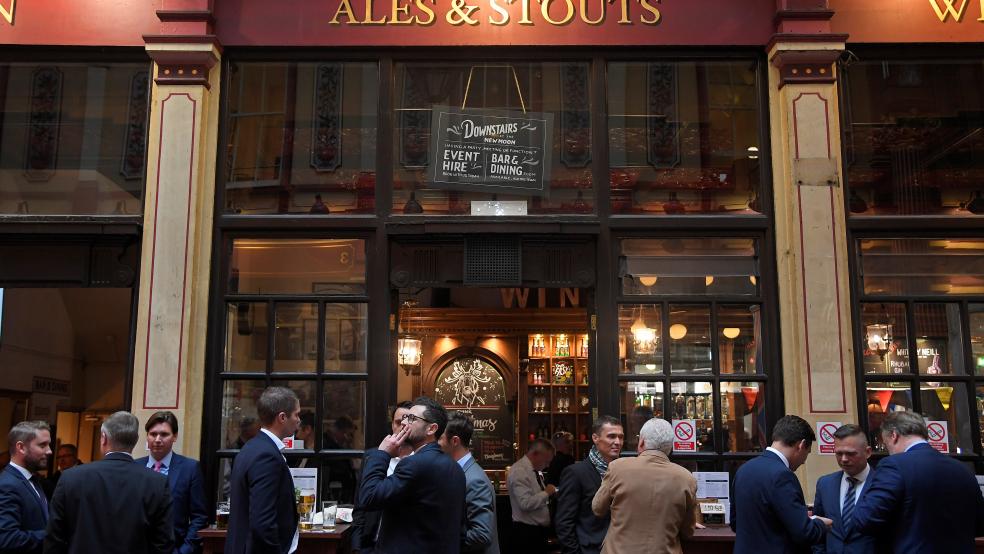After the global financial crisis in 2008, the plush eatery found its banker and lawyer clientele spent and lunched less.
And since Britain voted to leave the European Union last year, owner Soren Jessen - a former banker - says the mood has soured again, with breakfasts now more popular for meetings.But what concerns Jessen most about Brexit is being able to find enough people to cook for and serve his customers - all but three of his 60 staff come from outside Britain.Reuters has created a Brexit tracker that monitors six indicators, including restaurant and bar licence applications, to help assess the fortunes of "the City" as Brexit talks progress. For a graphic, click here: (http://tmsnrt.rs/2zzQOfC) The first edition of the tracker shows signs of a slowdown rather than any transformative decline. And the number of venues applying for licences to sell alcohol in the City of London actually hit a record high in the first eight months of the year.City officials say this is partly because the area's night life has diversified and no longer only caters for the expense account lunches of financial services sector workers.Jessen says that his restaurant continues to do good trade, but he is worried about the fate of his staff. Link to video: https://reut.rs/2B5fWsGQ: What is your biggest fear about Britain leaving the European Union?A: The main, immediate fear to us is employing the right staff. Immigration and future immigration policy is going to be hugely important for us, and we lack some direction and guidance on that.The British hospitality sector is an enormous employer. I think we employ, as a sector, three million people and it's unclear whether we'll be able to do that in the future. We need to employ whoever is best for the job, wherever they come from. Hopefully it's from the UK, but if it isn't, we need to be able to employ them from wherever they come from.Q: Can you take steps to protect your business?A: There's not much we can do. Of course, longer-term, this is what the government is talking about and encouraging everyone to do - we need to train up staff, so the U.K. staff can fill those jobs. Even so, the sector cannot train enough people to fill up those jobs in five years time down the road. And immediately we have seen a shortage of people applying ... they are not coming because they don't know what the future brings. Q: What impact are you already seeing on your business?A: The immediate impact has been much fewer CVs coming through. We have maybe as little as 20 percent of what we used to get a year ago or more, and there was already a shortage. It's difficult to attract people to the industry as a whole, and with fewer people coming from abroad it's going to be near impossible. Q: Has Brexit affected the amount the average customer spends on their bill?A: Brexit hasn't affected that. The financial crisis did - we had an immediate impact back then five or six years ago. The average spend dropped. That's come back slowly, not quite to where it was, but it's a new norm and it's probably quite stable at the moment.Q: Can you tell us about any other changes you've seen?A: There has been a change in peoples' behaviour. They dine quicker. Lunchtime is probably a little bit more about getting back to the office. Breakfast is hugely up as a chosen way of having business meetings. Q: Will people wanting to go into the restaurant business now wait and see how the Brexit negotiations pan out?A: There is definitely a wait-and-see (approach). I know from myself I am opening two new restaurants next year. It's been long coming and a long wait to get the right sites. But I can feel that a lot of people are holding back if they can and (if) they haven't got the plans in the pipeline, just to wait and see. (Reporting by Ciara Lee; editing by Alexander Smith)Brexit and the City: View from the dining room

TOBY MELVILLE



